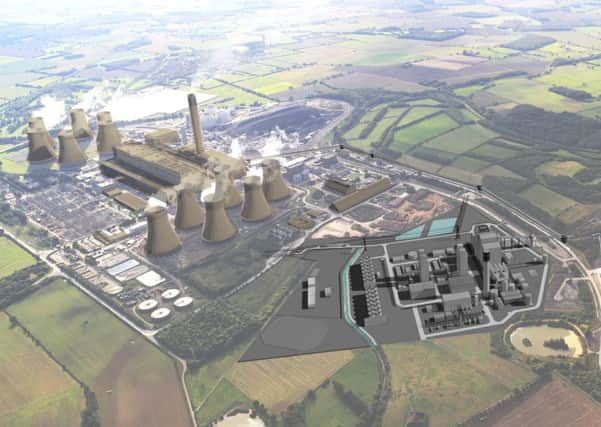Decision on multi-million pound investment in energy technology is ‘just weeks away’


The EU is expected to make an announcement next month over the investment of around £250m in carbon capture and storage (CCS) technology.
The White Rose Project, centred on the Drax power station, near Selby, is the only scheme to have reached the final stage of the EU competition.
Advertisement
Hide AdAdvertisement
Hide AdIt is estimated that the project could generate 1,000 construction jobs and 60 jobs on site once the plant is up and running.
Yorkshire MEP Linda McAvan said: “As well as the immediate jobs that the CCS project would create, the potential to export this technology, once developed, could also bring untold economic benefits to our region.
“The European Union is keen to invest in CCS technology in order to meet its ambitious climate action targets.
“With Yorkshire in the best position to deliver this project, I am hopeful that development will go ahead, allowing our region to reap the benefits of this huge pot of EU funding.”
Advertisement
Hide AdAdvertisement
Hide AdThe White Rose Project is a partnership between Drax, Alstom and BOC.
It would see the building of a new coal-fired power plant on the Drax site which could also be fuelled with biomass.
The plant would generate enough power for around 600,000 homes but crucially, around 90 per cent of the greenhouse gases generated would be captured and transported by pipeline to be stored under the North Sea.
It would be one of only three of its type in the world and the first in Europe.
Advertisement
Hide AdAdvertisement
Hide AdIt is hoped the project would be the first step in Yorkshire developing world leading expertise in this area.
Yorkshire is considered to be a prime candidate for developing CCS technology because of its history as a centre for power generation and proximity to the North Sea where the sea bed can be used for storage.
It is envisaged a pipeline network could eventually be developed to take and store harmful gases from power generators and heavy industry across the region.